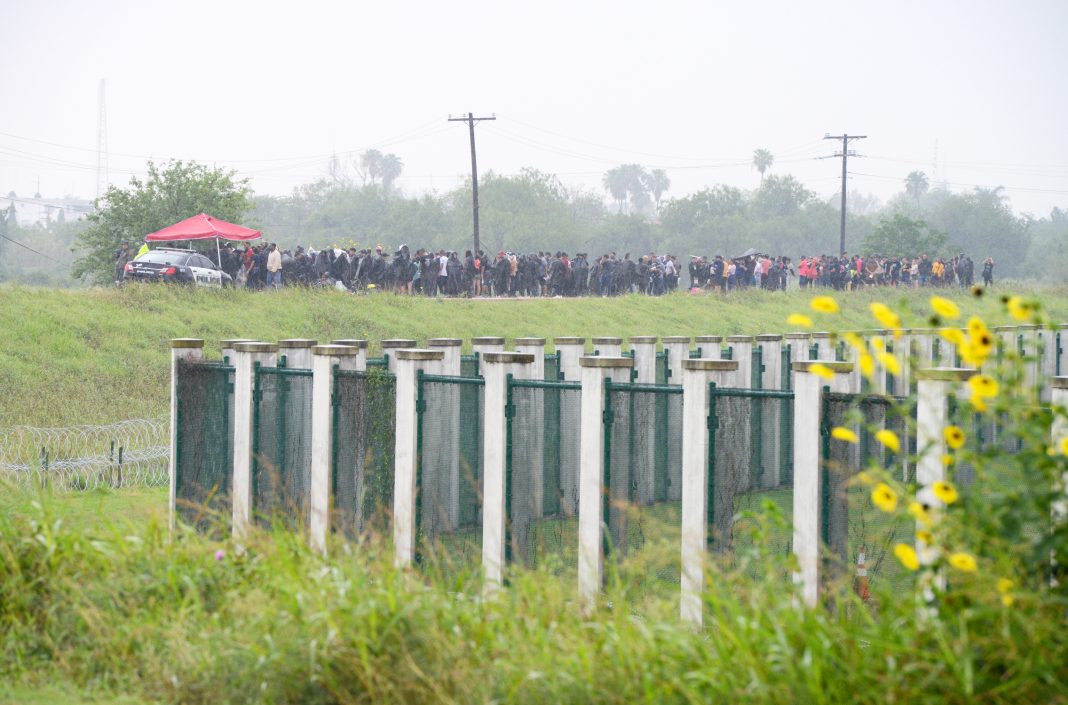|
Only have a minute? Listen instead
Getting your Trinity Audio player ready...
|
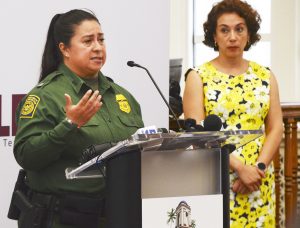
The city of Brownsville and the Rio Grande Sector of U.S. Customs and Border Protection held a news conference inside the city commission’s chambers Friday afternoon to address a massive uptick in migrants arriving at Brownsville’s international port-of-entry.
The surge occurs as the expiration date for Title 42 draws closer. Title 42 grants the government the power to quickly expel migrants and asylum seekers if deemed necessary to protect public health and social welfare. The Trump administration enacted it broadly in March 2020 in response to the COVID-19 pandemic, though the provision sunsets on May 11.
Border Patrol’s RGV Sector Chief Patrol Agent Gloria Chavez said that from Oct. 1 to April 27, roughly 165,000 people crossed the border illegally in the sector from Brownsville to Rio Grande City. The majority of the migrants have been Venezuelan nationals, though CBP has encountered more than 72 nationalities, including Honduran, Mexican and Chinese nationals, Chavez said.
“Here in the last eight days we saw an uptick of over 15,000 Venezuelans,” she said.
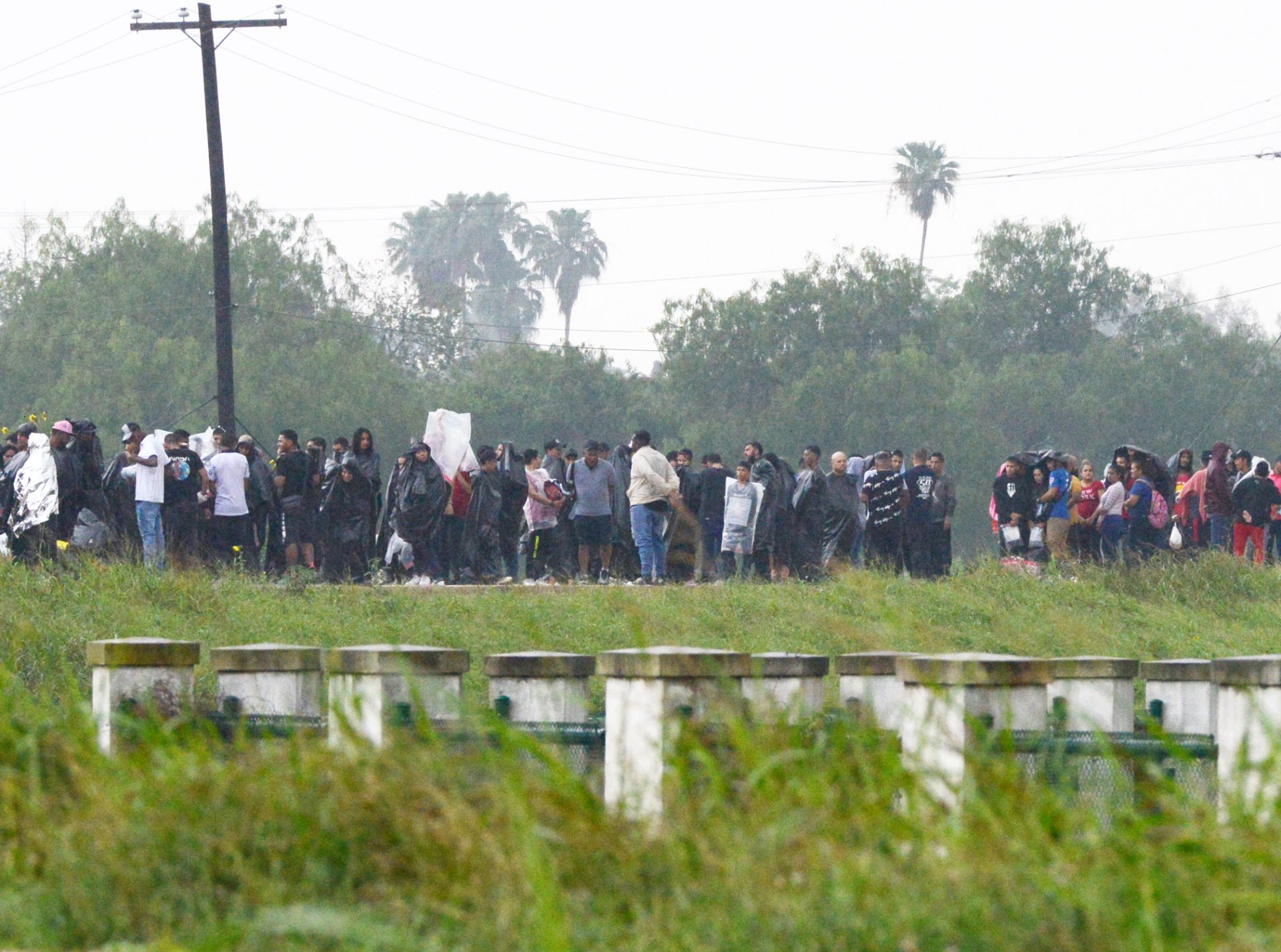
Chavez said it’s a huge challenge for CBP to deal with logistics while also ensuring the well-being of migrants and the border agents on the front line. The sector’s two major holding facilities, in Donna and McAllen, are well beyond capacity as CBP continues to receive people daily, she said.
CBP has shifted resources to the Brownsville port-of-entry to deal with the influx, while help from the Brownsville police, fire and emergency management departments and other area law enforcement agencies has been absolutely crucial, Chavez said.
The former Fort Brown Golf Course has been a focal point for illegal crossings, and CBP has set up temporary staging facilities there, she said. Using mobile devices, CBP officers are able to quickly photograph, register biometrics and conduct record-checks on migrants before busing them out of the area, Chavez said.
“That is the new way of us officially getting people out of a certain region,” she said. “For us it’s very important that they don’t congregate at that location, and that we’re able to get them closer to central processing centers and/or … other locations outside the RGV.
“For us the number one priority is for us to be able to process people as quickly as possible, place them on a bus or a flight, and get them out of the RGV area to their next immigration pathway. We don’t want to delay that process, because then it delays everything else.”
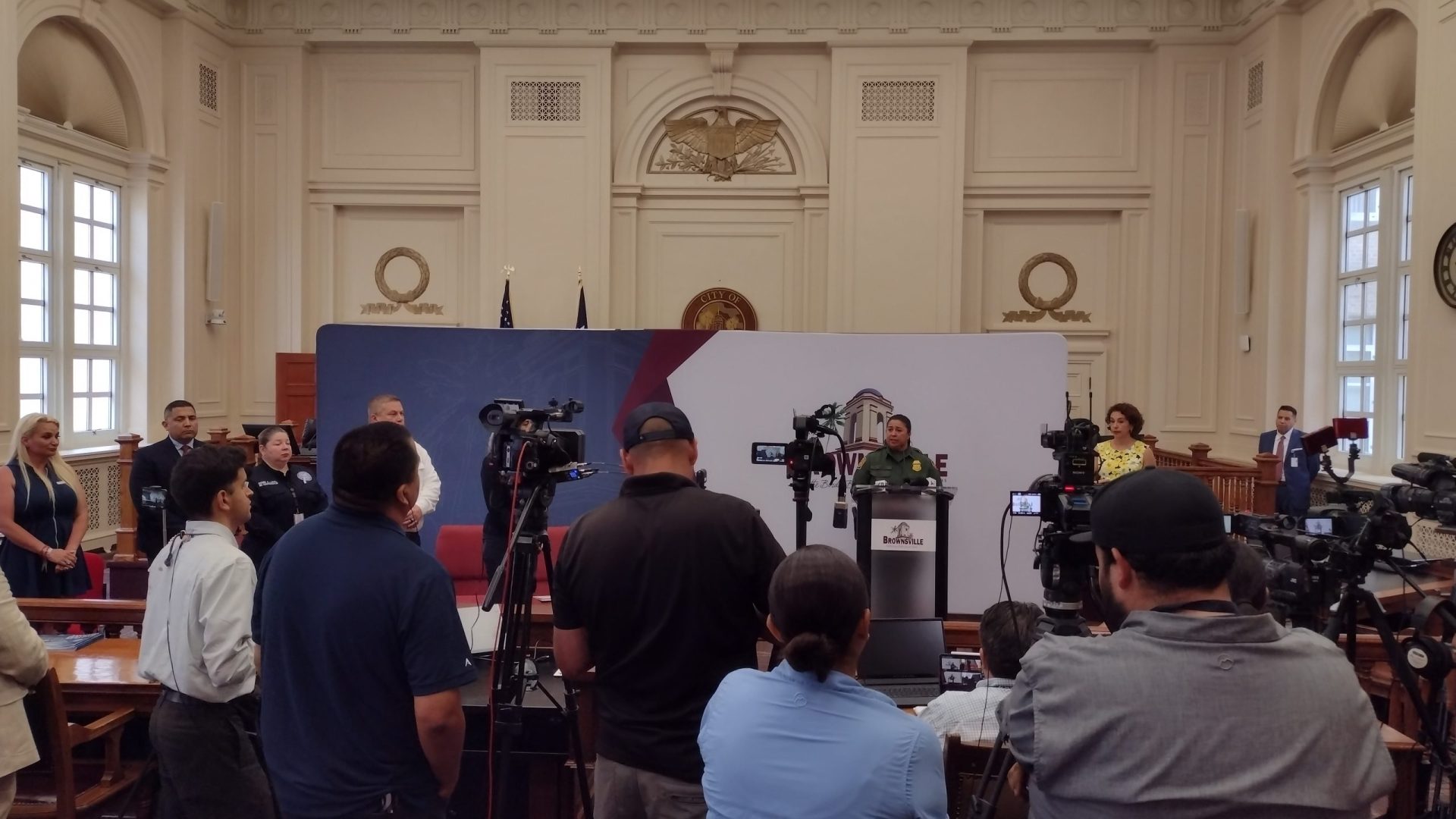
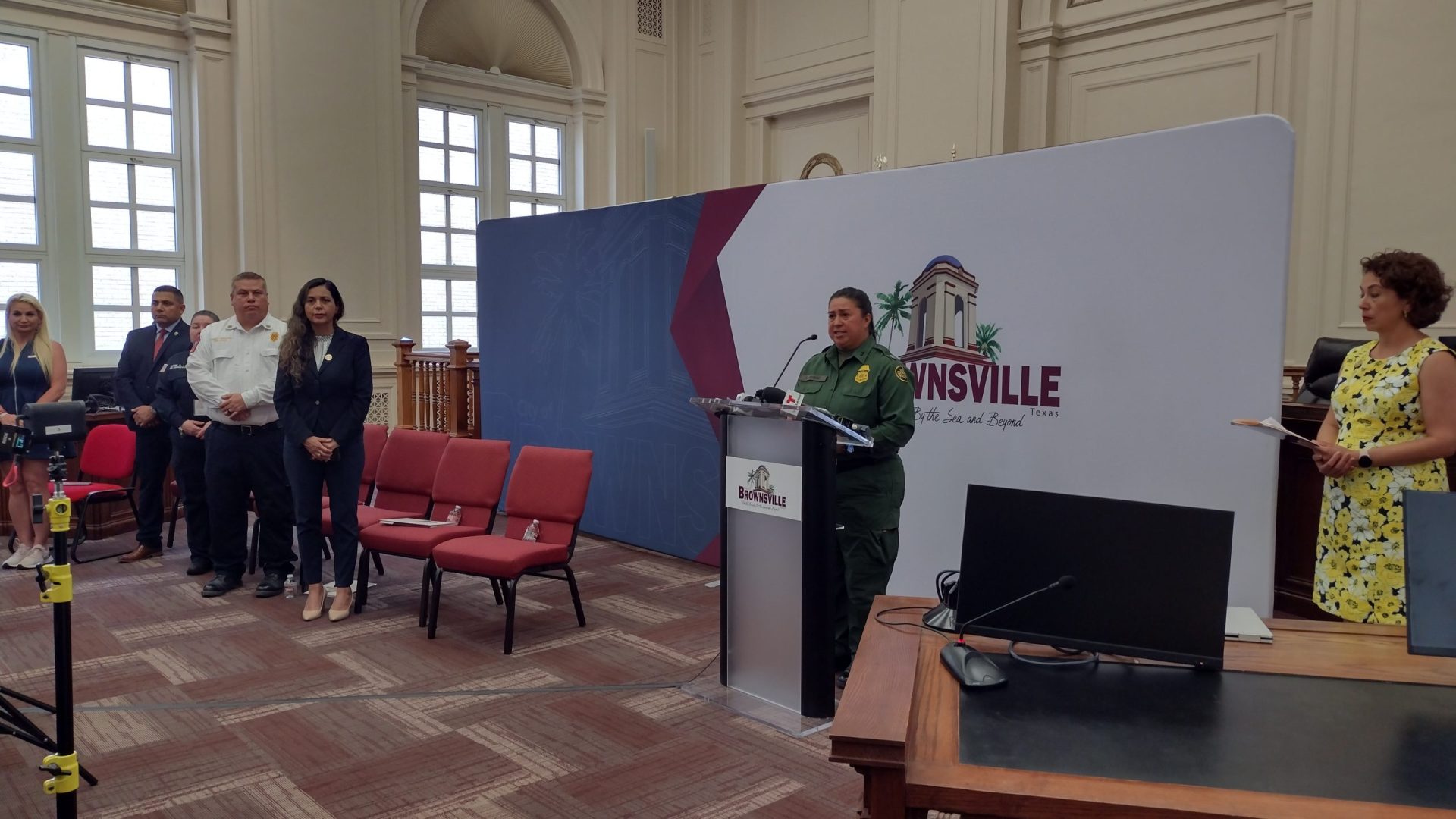
Daily communication and coordination with CBP’s Mexican counterparts have also been critical, Chavez said. Meanwhile, CBP is working hard to get the message across to migrants camped south of the river or on their way to Matamoros that Title 42 is still in force, she said.
“Title 42 is still in place until May 11,” Chavez said. “We are going to continue encountering you, processing you and then immediately expelling you through our port-of-entry.”
While many migrants are applying for entry into the United States via CBP’s One app, a number grow frustrated waiting to be assigned court dates and decide to try to cross illegally, she said. Noting that Brownsville is her hometown, Chavez said CBP is invested in ensuring the safety of the community while also providing the necessary services to migrants.
She’s also very concerned about burnout on the part of border agents during this particularly busy time.
“They’re also human beings and they endure a lot during influxes like this, so we’re doing our very best to ensure that our agents are well taken care of, that we give them the equipment and the resources that they need to get their job done, but at the end of the day they can go home safely as well,” Chavez said.
She said it was important to let the community know exactly what’s going on and that the RGV sector is making all necessary preparations in advance of May 11.
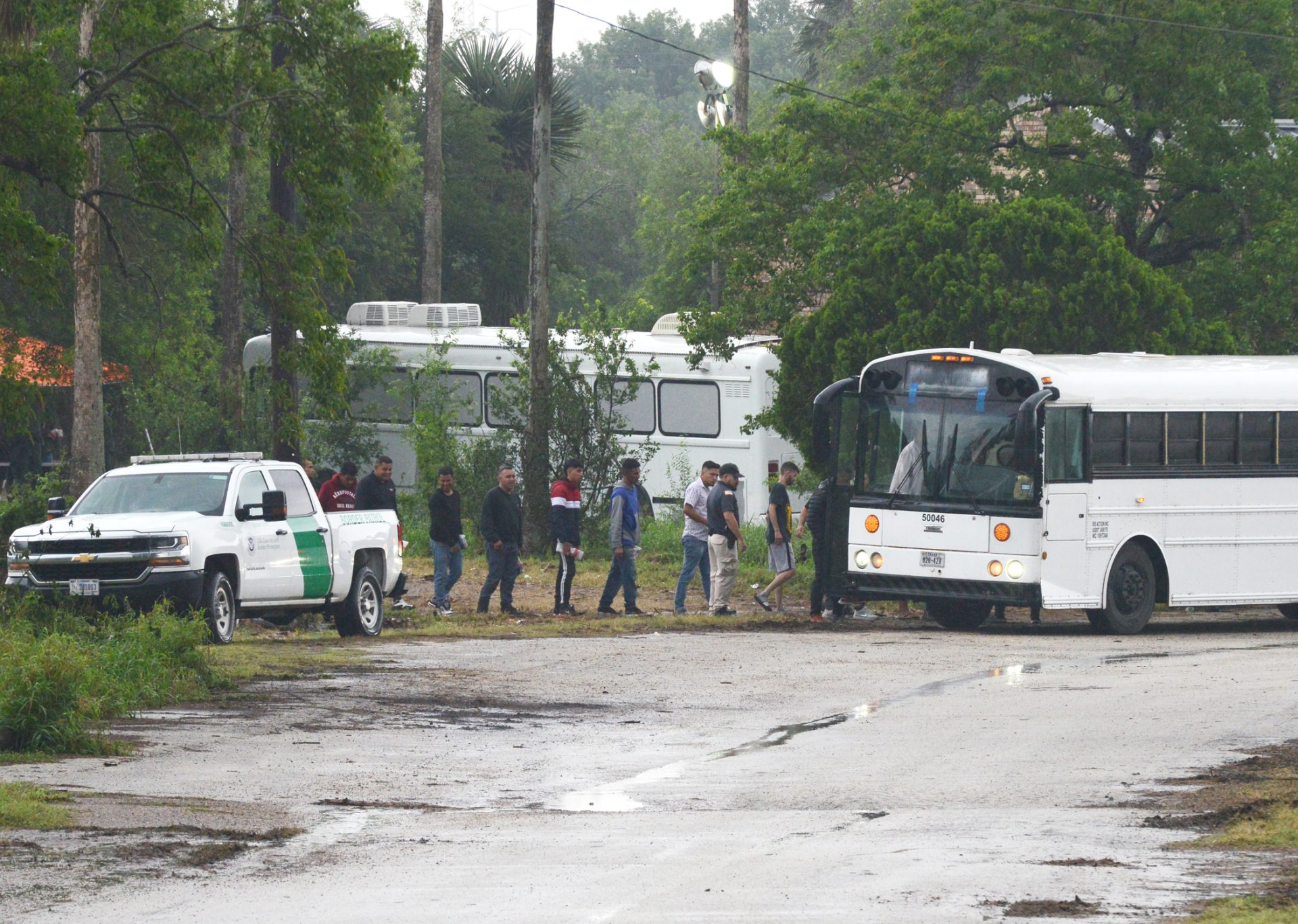
They’re also human beings and they endure a lot during influxes like this, so we’re doing our very best to ensure that our agents are well taken care of, that we give them the equipment and the resources that they need to get their job done, but at the end of the day they can go home safely as well.
District 1 City Commissioner and Mayor Pro-Tem Nurith Galonsky, who signed a migrant-related disaster declaration Thursday, emphasized that the migrants coming to Brownsville “are not here to stay.”
“They have final destinations outside Brownsville,” she said. “We will manage this with due process as these individuals seeks asylum and eventually move onto their final destination.”
Galonsky said measures are being taken to ensure “the safety and well-being of all our residents regardless of their background or immigration status,” noting that the city has successfully managed migrant border crossings for years with a humanitarian approach that also adheres to the law.
“In this case it’s no different,” she said.
RELATED READING:
Confusion among shifting border policies exists as end of Title 42 looms

